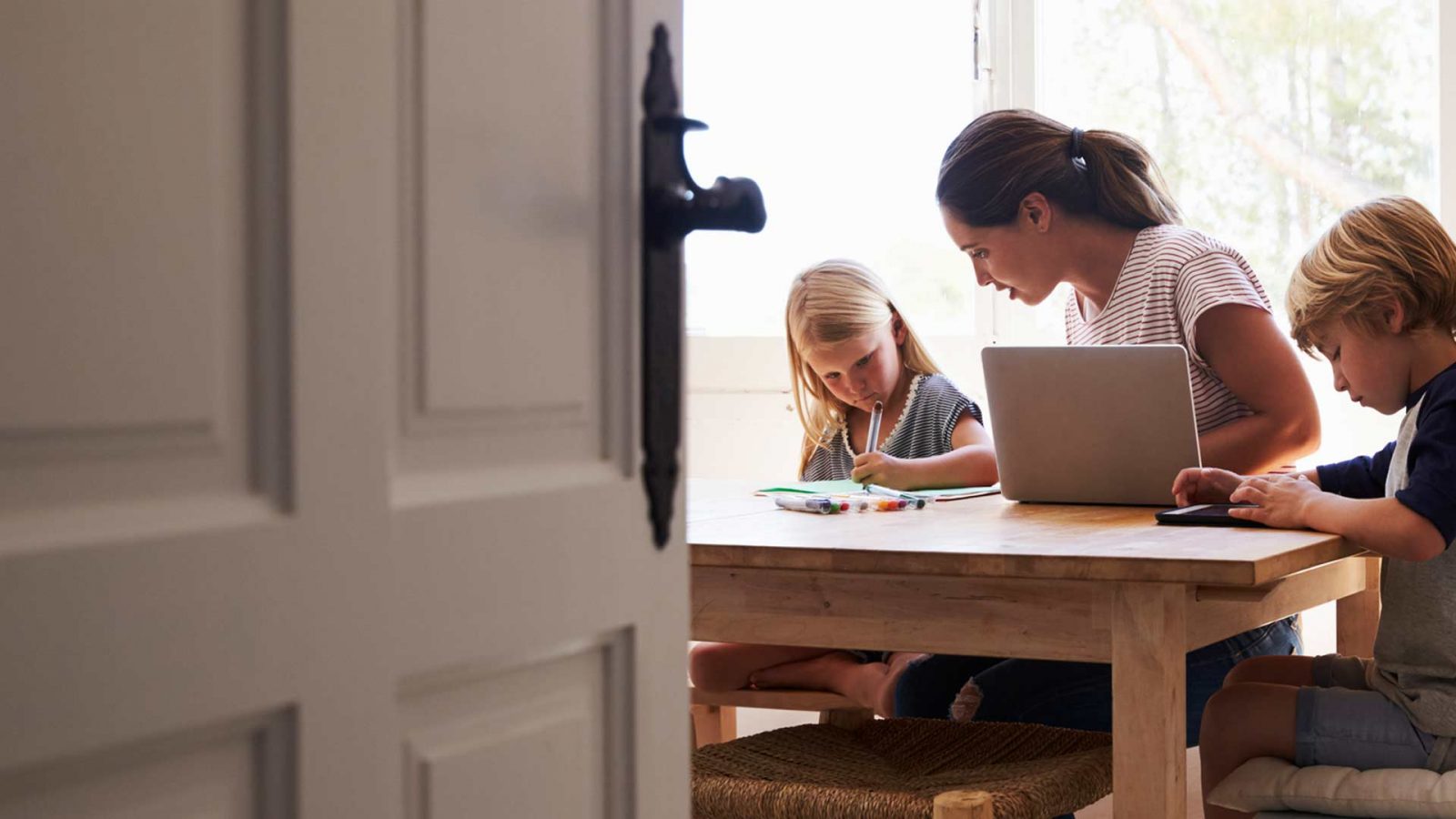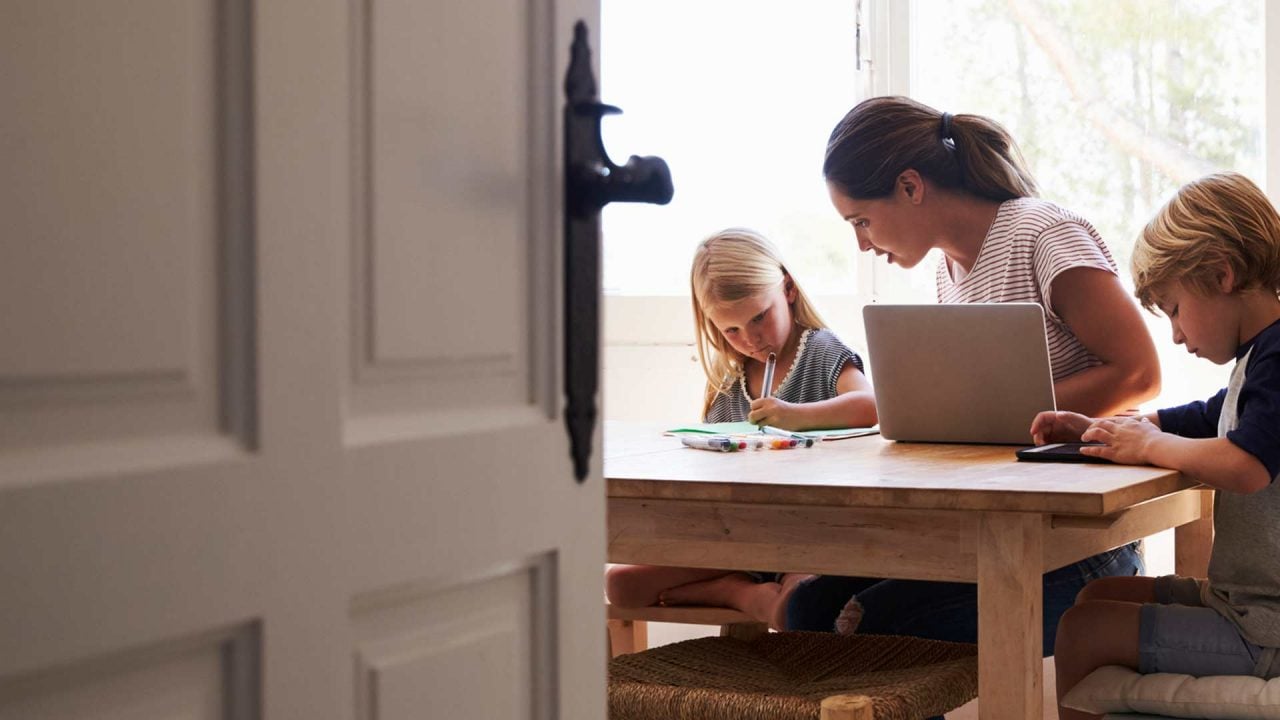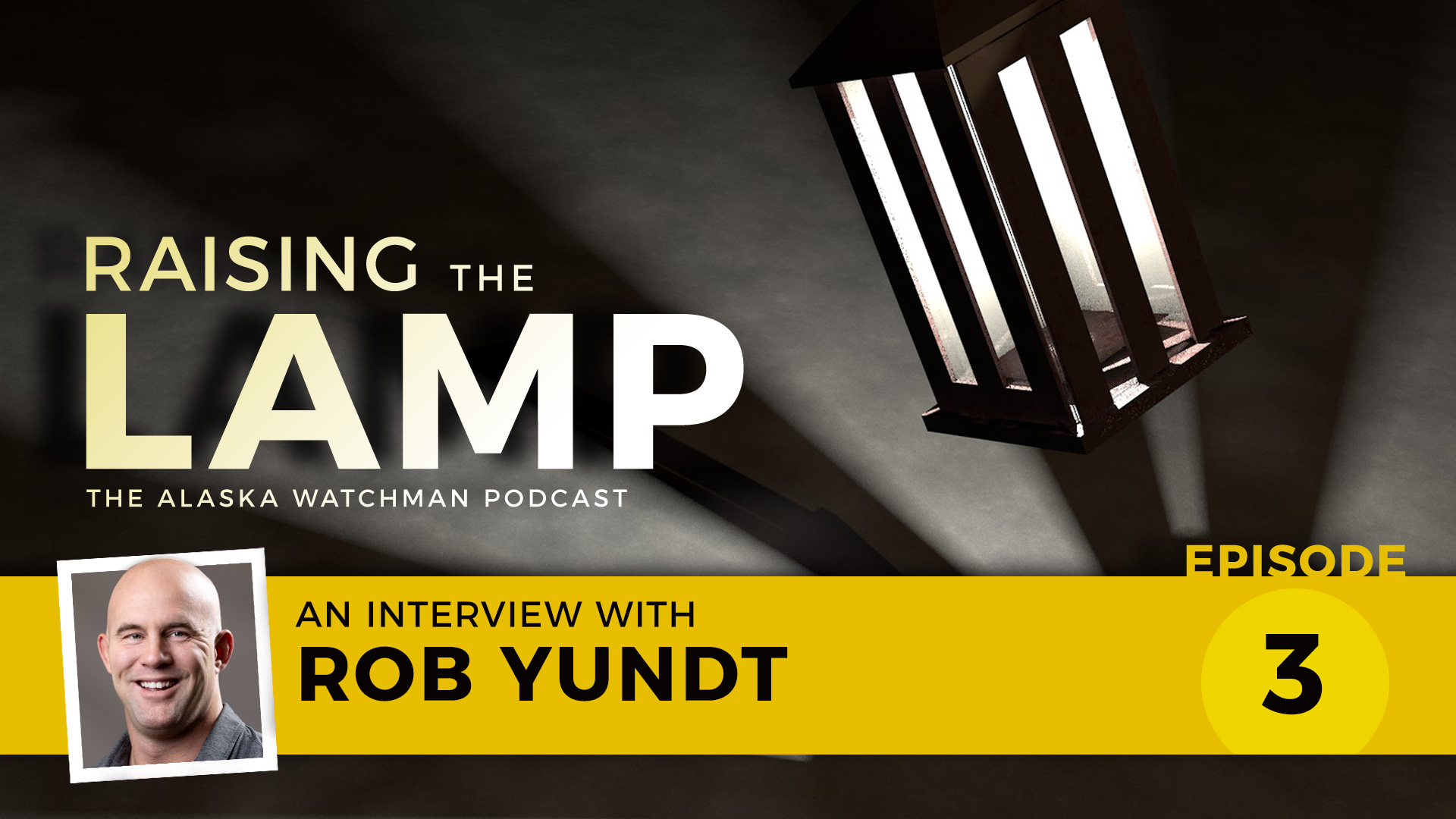
With COVID-19 shutting down all traditional public schools in Alaska, tens of thousands of parents have been thrust, almost overnight, into the role of home educators. According to leaders from some of the top state-run homeschool programs, many of these parents are pondering a permanent change.
“We’ve seen some people who after a couple of weeks of doing this are like, ‘You know what, we could actually handle this. We never thought we could but now we realize that we can,’” said Jethro Jones, principle of Fairbanks B.E.S.T, one of 30 state-funded homeschool programs in Alaska. “We have an uptick in people who are interested in doing this long term.”
Nearly 15,000 Alaska students are enrolled in state-funded homeschooling this year.
Kimberly Bergey is an assistant principal for Raven Homeschool. She oversees the program in Juneau, Wasilla and Eagle River. Over the past few weeks, Bergey has heard from many parents seeking long-term homeschooling options.
“We have a lot of phone calls coming in,” she said. “We are seeing a bump in enrollment early on for the next program year.”
Alaska has some of the most liberal homeschool laws in the nation. Families can choose from among dozens of state-run programs that offer parents the freedom to develop and teach their preferred curriculum, while checking in with certified teachers on a monthly or quarterly basis. These options provide yearly stipends between $1,300 and $2,400 per child, which parents use to pay for books, materials, classes, tutoring and educational activities.
Nearly 15,000 Alaska students are enrolled in state-funded homeschooling this year and those numbers are expected to jump in the fall.
The freedom to teach faith-based values is key for many homeschool parents, Bergey observed.
Many other parents choose independent homeschooling, which is free from government oversight but without state financial assistance. The exact number of independent homeschoolers is difficult to track, but this group is free to teach any curriculum, including faith-based material in every subject.
Those who opt for state-funded homeschooling also can teach religious material, but must purchase this curriculum with private funds.
The freedom to teach faith-based values is key for many homeschool parents, Bergey observed.
“Probably the primary one is religious belief,” she said. “Second is the flexibility and mobility it offers families.”
Principal Jethro Jones, of Fairbanks B.E.S.T. homeschooling program, said educational flexibility is important to the many military families he serves. Others want to weave “homesteading type stuff where they have animals and gardens and they want their kids to experience those types of things,” he said.
Increasingly, many parents also want to remove their kids from what they see as toxic social environments in traditional public schools, Jones added.
Sometimes the freedom to choose manifests itself in the curriculum people choose to use – their family values.
“What we’ve seen recently is a lot of families want to get away from social pressures – bullying and things like that,” he said. “That’s been a significant number of kids in the last year who have wanted to do homeschooling.”
Daryl Bowers oversees IDEA, the largest statewide homeschool program in Alaska with more than 5,000 students. He said the appeal of homeschooling ultimately comes down to one word – “choice.”
“Sometimes the freedom to choose manifests itself in the curriculum people choose to use – their family values,” he said. “It manifests itself in the academic ability of their kids and being able to teach their child exactly the way they learn. It is basically the choice to educate their family exactly the way they see fit.”
Continuity and stability are other reasons families opt for home education. During the COVID-19 pandemic, traditional schools have scrambled to restructure how they deliver education. Homeschool programs, however, were well positioned for the crisis. They had to cancel social gatherings and group field trips, as well as face-to-face classes in their facilities, but many of these activities were seamlessly moved online.
Jones noted that many parents are realizing this might be something they can actually pull off.
“For brick and mortar schools it has absolutely changed the way they serve their students – it’s been highly disruptive,” Bowers said. “For us, we already had all the mechanisms in place to switch very quickly from an in-person face-to-face to an online face-to -face. Many families were already set up.”
Parents considering homeschooling should take a close look at how their family functions to see if it would be a good fit, Bergey advised.
“Some families think they can’t homeschool because both parents work, and the only time they have to do school is in the evening,” she said. “But if they are willing to give up three hours in their evening, they still can homeschool. Because on average, most homeschool children can complete the required amount of work within a three to four-hour period.”
Jones noted that many parents are realizing this might be something they can actually pull off.
“It’s definitely a different experience,” he said. “But if you’re enjoying this time with your kids and seeing them in different light and it’s a positive experience, I would say you should think about it, but I don’t think you should rush into it.”
For now, many state-homeschooling programs aren’t actively recruiting families who want to shift to homeschooling during the final weeks of the academic year. They are, however, working with those who contact them.
We are expecting to have to hire additional staff next year.
“We are getting a lot of phone calls from parents these days who are thinking about next year,” Bowers said. “Even if COVID is around in the fall and brick and mortar schools continue to be closed, if families choose to homeschool, they know exactly what their school year is going to look like. They can take complete control of their goals and objectives.”
As many parents consider the switch to home education, homeschool programs are prepared to welcome them.
“We can take in as many as want to enroll,” Bergey said, “and we are expecting to have to hire additional staff next year.”
Click here to view all state-funded homeschool programs in Alaska.
Click here to find out about independent homeschooling in Alaska.








1 Trackback or Pingback